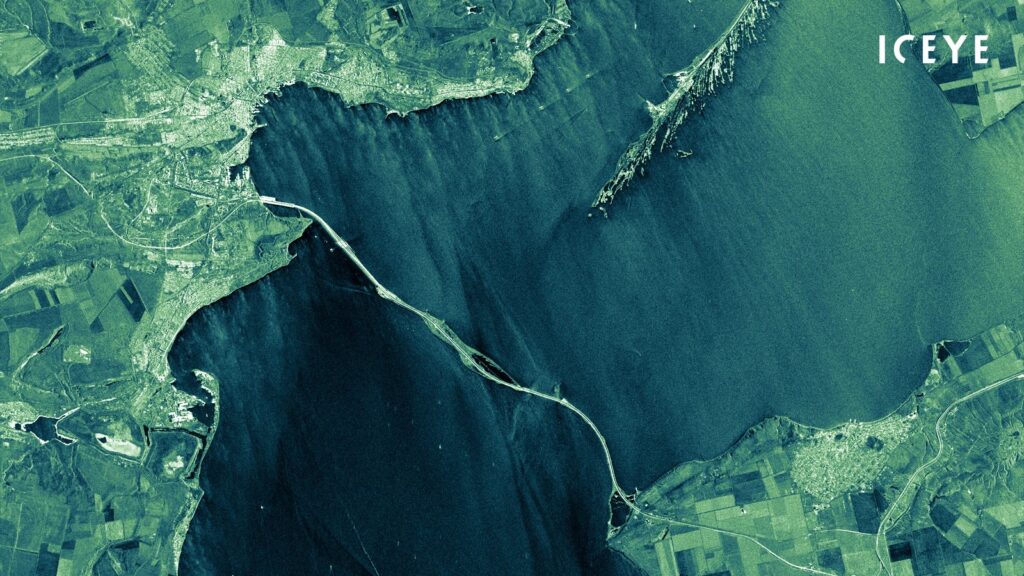Finland’s Short, Precious Summers Are Plagued by Goose Poop

© Saara Mansikkamaki for The New York Times

© Saara Mansikkamaki for The New York Times

Poland is finalizing a deal on investing in the satellite firm that spotted Russian troops moving toward Ukraine before Moscow’s full-scale invasion, the Financial Times reports. Iceye provided Ukraine with early radar imagery in early 2022 is going to expand production.
FT says Poland is at the final stages of an agreement to buy equity in Iceye, a Polish-Finnish satellite company whose radar systems helped Ukraine detect Russian troop buildups ahead of the full-scale invasion in February 2022. Iceye’s chief executive Rafał Modrzewski confirmed the deal, which will be made through Poland’s national development bank. He did not disclose the size of the investment.
The satellite firm that spotted Russian troops—now valued at well over $1bn—has already raised $550mn from investors. Modrzewski said the new funding would allow Iceye to rapidly expand production to meet soaring demand for real-time defense imagery. The deal follows Poland’s $230mn purchase in May of up to six Iceye satellites.
Founded in 2014 by Modrzewski and Finnish co-founder Pekka Laurila, Iceye began by providing radar data to Arctic shipping routes. That business collapsed after Western sanctions cut off the Russian market, prompting a pivot to military applications. Iceye’s synthetic aperture radar (SAR) can see through cloud cover and at night—making it indispensable in battlefield conditions where optical satellites fail.
Modrzewski told the Financial Times that Iceye plans to grow its manufacturing capacity from 25 satellites a year to as many as 150. Each satellite costs around $20 million to build.
Iceye has launched 54 so far, with about half operated by national defense forces in countries including the Netherlands, Finland, Brazil, and Portugal. In 2024, Iceye signed a memorandum of cooperation with Ukraine to deepen collaboration. Most launches have taken place from California’s Vandenberg Space Force Base or Florida’s Cape Canaveral, though missions have also originated from India and New Zealand.
Beyond Poland, Iceye is expanding through international partnerships. It recently created a joint venture with Rheinmetall to manufacture satellites in Germany, aiming to tap into the country’s rising defense budget and connect with its weapons systems.

A global law enforcement campaign has dealt a blow to the pro-Russian cyber army known as NoName057(16). Europol confirmed that about 20 countries helped dismantle the network behind thousands of attacks on Ukraine’s supporters.
Europol reported that between 14 and 17 July, authorities from 12 countries launched Operation Eastwood. Europol and Eurojust coordinated the joint crackdown. The effort reportedly dismantled major parts of the pro-Russian cyber army’s infrastructure, including hundreds of systems.
Germany issued six arrest warrants for suspects based in Russia. Two are accused of leading the group’s activities. Spain issued another arrest warrant. France and Spain also reported one arrest each. All suspects are internationally wanted.
Authorities carried out 24 house searches and questioned 13 individuals across Europe. In Spain alone, 12 searches took place. Investigators also notified over 1,000 individuals believed to support the cyber group. Fifteen of them were administrators.
Other attacks struck during the European elections. Swedish government and banking websites were affected. In Switzerland, NoName057(16) launched attacks in June 2023, during a speech by Ukraine’s president to the Joint Parliament. Another wave occurred in June 2024 during the Peace Summit for Ukraine at Bürgenstock.
The most recent attack linked to the group targeted the NATO summit held in the Netherlands in June 2025. Europol notes that although the attacks caused disruption attempts, none led to substantial outages.
Europol identifies NoName057(16) as an ideological cyber network that operated without formal leadership. The group recruited mostly Russian-speaking sympathizers, many with little technical knowledge. Its structure relied heavily on gamified propaganda and incentives.
Volunteers received cryptocurrency payments and recognition through online shout-outs, badges, and leaderboards. Europol notes this method especially appealed to younger users who felt emotionally involved in Russia’s political narratives.
To simplify participation, NoName057(16) distributed guides and tools like DDoSia. Europol also launched a prevention campaign warning suspected supporters of their criminal liability, delivered via the same communication platforms.

Finland's parliament voted on June 19 to withdraw from the Ottawa Convention banning anti-personnel landmines, citing growing security concerns from Russia's aggressive posture and the threat it poses to the region, Reuters reported.
The vote aligns Finland with its Baltic allies, Estonia, Latvia, and Lithuania, whose parliaments have already approved similar exits from the treaty.
Defending the decision earlier this week, Finnish President Alexander Stubb said the security reality along Finland's 1,300-kilometer (800-mile) border with Russia had changed dramatically since the full-scale invasion of Ukraine, according to TVP.
"The reality in the endgame is that we have as our neighboring country an aggressive, imperialist state called Russia, which itself is not a member of the Ottawa Treaty and which itself uses landmines ruthlessly," Stubb said.
Russia has widely deployed landmines across Ukrainian territory since launching its invasion in 2022, a tactic condemned by human rights organizations and Western governments.
Finland, which joined NATO in 2023, has significantly ramped up its defense posture amid growing concern over potential Russian provocations. The country closed its border with Russia over a year ago, accusing Moscow of orchestrating a "hybrid operation" by directing asylum seekers toward Finnish territory. Helsinki claims such hybrid tactics have intensified since it joined the alliance.
The Finnish Border Guard completed the first 35 kilometers (22 miles) of a planned 200-kilometer (124-mile) fence along its eastern frontier on May 21. The move came amid growing evidence of Russian military infrastructure expansion near the Finnish border.
Finland is "closely monitoring and assessing Russia's activities and intentions," Finland's Defense Minister Antti Hakkanen told AFP on May 22.
"We have excellent capabilities to observe Russian operations. As a member of the alliance, Finland holds a strong security position."
Russia's Defense Minister Andrei Belousov said in December 2024 that Moscow must be ready for a potential conflict with NATO within the next decade. Western officials have repeatedly warned of the possibility that Moscow could target NATO members in the coming years.
 The Kyiv IndependentDmytro Basmat
The Kyiv IndependentDmytro Basmat